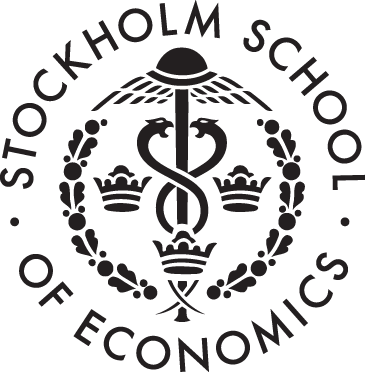Pressmeddelande -
News shocks and the US business cycle
News shocks can be considered among the main drivers of the US business cycle since the 1980s because they explain most of the fluctuations in the economy, Paola Di Casola concludes in a chapter of her PhD thesis at The Stockholm School of Economics.
In her recent paper News Shocks and Structural Breaks, Paola Di Casola builds on Beaudry and Portier’s idea that the so-called ‘news shocks’ - sudden changes in what people expect about the future of the economy - are responsible for the business cycle in the US.
It is well understood that stock prices contain information about what market participants expect of the future of the economy. Stock prices can therefore be used to identify sudden changes in the information available (news) to market participants about the future of the economy. Paola, like Beaudry and Portier, focuses on technological news. She tries to uncover whether stock prices react in advance of a change in technology and how this anticipated movement affects the real economy.
“Suppose that we suddenly expect a future increase in productivity in Sweden. This optimism about the future may affect the economy today. Investment, consumption, output would pick up before the real productivity increase takes place,” Paola says. “However, the expectations may turn out to be wrong. The investment would start falling, since people would realize they have been too optimistic. A burst would take place, simply because the realized level of productivity has failed to address people’s expectations.”
Paola has refined Beaudry and Portier’s analysis and revealed that news shocks can be identified through stock prices and measures of productivity only after the 1980s. She argues that a structural break in the long-run relationship between these two variables occurs in the sample covering the post-WWII period.
Taking this break into account allowed Paola to better identify the role of news shocks as drivers of the US business cycle fluctuations. Since the 1980s, they are indeed among the main drivers of the US business cycle fluctuations. Sudden changes in information that lead to optimistic expectations about the future of the economy affect consumption, investment and output positively.
Paula Di Casola is now an economist at Sveriges Riksbank.
For further information please contact:
Paola Di Casola
Tel: 0762736692
Ämnen
- Ekonomi, finans
Regioner
- Stockholm
The Stockholm School of Economics (SSE) is the leading business school in Northern Europe. For more than a century, SSE has educated talented women and men for leading positions within the business community and the public sector.
SSE offers bachelors and masters degree programs along with highly regarded PhD, MBA and executive education programs. SSE has earned a reputation for excellence both in Sweden and around the world.
The School is accredited by EQUIS (European Quality Improvement System) certifying that all of its main activities, teaching as well as research, are of the highest international standards. SSE is also the Swedish member institution of CEMS (The Global Alliance in Management Education) and PIM (Partnership in International Management).
Stockholm School of Economics . Sveavägen 65 . Box 6501. SE-113 83 Stockholm . Sweden . Phone +46 8 736 90 00 . www.hhs.se
